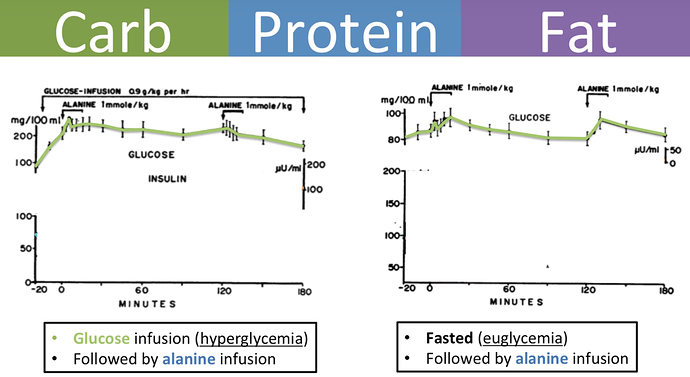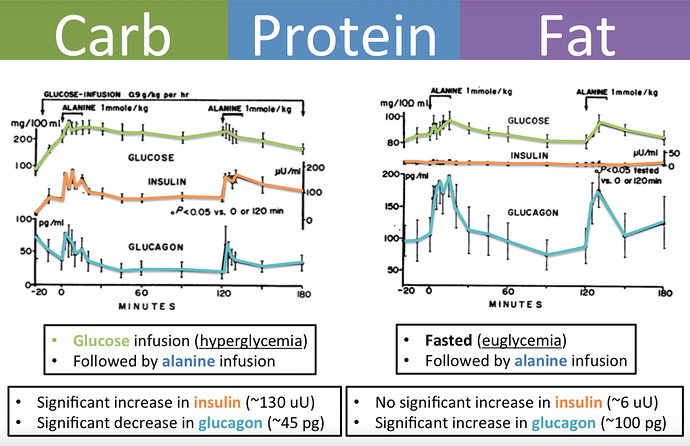Yesterday I watched Dr. Benjamin Bikman’s lecture “Insulin vs. Glucagon: The relevance of dietary protein” (Link below) at Low Carb Down Under.
I know protein intake can be a contentious debate among the ketogenic community, but his lecture brings up some fascinating points regarding insulin response from the intake of protein. Anyone who is familiar with Jason Fung’s literature will remember the studies he cites that indicate that protein is coupled with some insulin response (some higher than others). Dr. Bikman, however, presents data that shows that a protein’s insulin response is dependent upon the existing glycemic level of the individual. For instance, a person who is eating the SAD (high glycemic state) would demonstrate a high insulin response when consuming protein as compared to someone who is either fasting or eating a ketogenic diet (low glycemic state) who would show a minimal or no insulin response when consuming protein.
This is a significant point in my opinion, and explains, in part, why Americans and other westernized countries who consume high levels of animal proteins in combination with carbohydrates exhibit high levels of obesity. It also indicates that protein may not be as deleterious to the ketogenic state as previously believed. Dr. Bikman concludes that because the body must source its glucose from gluconeogenesis (either from proteins or triglycerides), these dietary proteins do not stimulate insulin as that insulin would result in removing endogenously-produced glucose from the blood and cause hypoglycemia.
What do you think? I’ve never really worried about my protein intake, and now I really won’t.
Also–To the two keto dudes (@richard @carl) ! I think you’ve had Dr. Bikman on the show before (or I am thinking of another keto podcast). Either way, it would be awesome to hear from him again or hear your guys’ take on this subject of appropriate protein consumption.

 Thanks for your response!
Thanks for your response!
